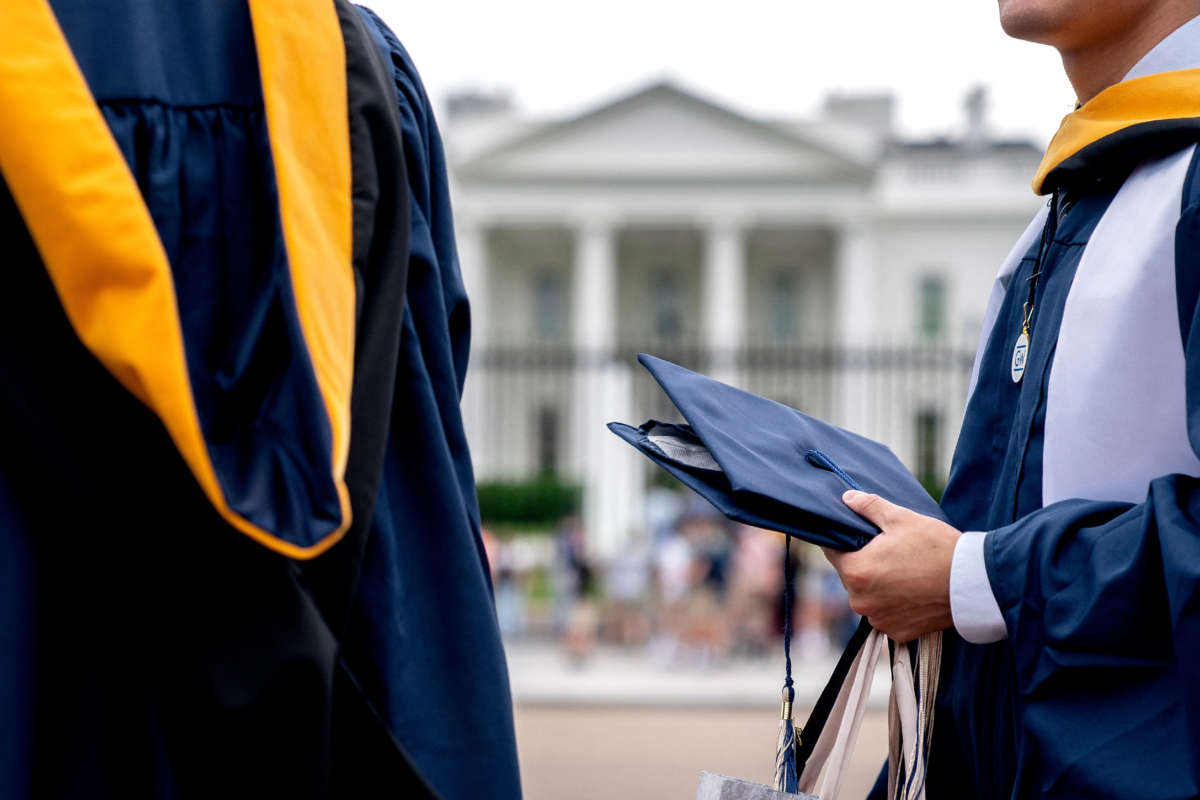Did you know that Truthout is a nonprofit and independently funded by readers like you? If you value what we do, please support our work with a donation.
The Biden administration has told student loan servicers not to send out billing statements to borrowers ahead of the scheduled end date of the current payment pause, signaling that officials may be preparing to extend the student loan payment pause yet again.
The current student loan payment pause ends on August 31, meaning that borrowers will have to start repaying student loans for the first time since March 2020 in September, or face default if the pause expires. Servicers typically send out billing notices about a month before the payment is starting.
President Joe Biden had last extended the pause in April, after months of pressure from debt activists and progressive lawmakers on student debt cancellation. The administration had also told servicers to hold off on sending billing notices ahead of that announcement.
The Education Department says that, this time around, it “will communicate directly with borrowers about the end of the payment pause when a decision is made.” But Biden is not expected to make a decision until as late as the end of August — which has frustrated student loan activists, who say that only a few days’ notice until the potential restart of payments is not enough time.
If Biden extends the payment pause again, it would come at a critical time for the Democratic Party, ahead of this fall’s midterm elections. Polls have found that Biden is losing ground among student loan borrowers, as his administration has waffled on his campaign promise to cancel up to $10,000 of debt per borrower. Meanwhile, the payment pause and debt cancellation poll well with voters, with a majority of voters favoring both ideas.
Experts have said for years that Biden can use his executive power to cancel student loans without Congress, but Education Department officials have been hotly debating the issue of student debt for over a year and have yet to come to a conclusion on the matter.
On Tuesday, lawmakers again encouraged Biden to cancel student debt on Twitter. “President Biden can use the same power he’s used to pause student loan payments to cancel student debt for 45 million Americans,” Rep. Pramila Jayapal (D-Washington) said. “And he must.”
In April, Biden hinted in a meeting with fellow lawmakers that he may soon be taking steps to cancel student debt. The administration said that it was exploring up to $10,000 of cancellation per borrower with an income cap of $125,000 a year, disappointing debt cancellation advocates and baffling Education Department officials, who say that the agency doesn’t have the data to determine borrowers’ incomes.
Now, months later, the administration has resumed its silence on the issue of broad cancellation, despite continuous pressure from lawmakers and activists to announce a sweeping plan without an income cap.
Opponents of the income cap point to the Public Service Loan Forgiveness program, which has been plagued with major issues. The program, which recently underwent an overhaul, is supposed to forgive loans for borrowers who have paid their loans on time and have worked in a public sector job, but the program rejected 99 percent of applicants during the first year of its implementation between 2018 and 2019.
The public service program requires borrowers to jump through a set of complicated hoops, including filing paperwork — much like an income-capped cancellation program might also require, borrowers say.
Furthermore, advocates say that the administration’s reason for imposing a cap is moot. Conservatives falsely argue that student loan cancellation would only benefit the richest borrowers, but research has shown that $10,000 of broad cancellation overwhelmingly benefits low-income and Black borrowers and would go a long way to close income gaps. The benefit only further scales with more cancellation; up to $50,000 of debt cancellation, as lawmakers have proposed, only comes with further benefits for the borrowers most in need.
A terrifying moment. We appeal for your support.
In the last weeks, we have witnessed an authoritarian assault on communities in Minnesota and across the nation.
The need for truthful, grassroots reporting is urgent at this cataclysmic historical moment. Yet, Trump-aligned billionaires and other allies have taken over many legacy media outlets — the culmination of a decades-long campaign to place control of the narrative into the hands of the political right.
We refuse to let Trump’s blatant propaganda machine go unchecked. Untethered to corporate ownership or advertisers, Truthout remains fearless in our reporting and our determination to use journalism as a tool for justice.
But we need your help just to fund our basic expenses. Over 80 percent of Truthout’s funding comes from small individual donations from our community of readers, and over a third of our total budget is supported by recurring monthly donors.
Truthout has launched a fundraiser to add 340 new monthly donors in the next 5 days. Whether you can make a small monthly donation or a larger one-time gift, Truthout only works with your support.
